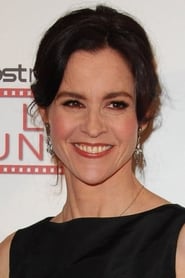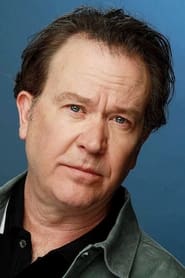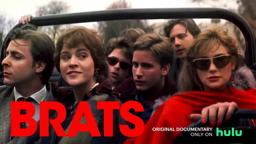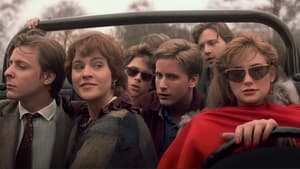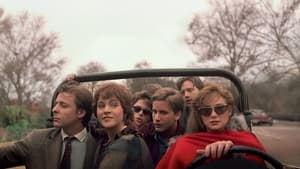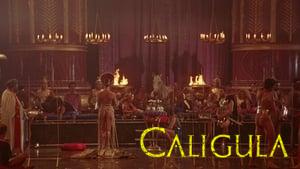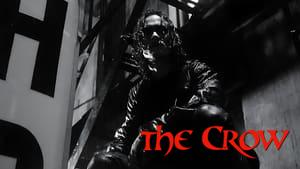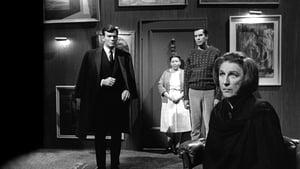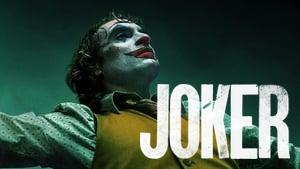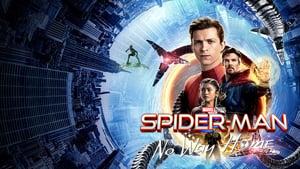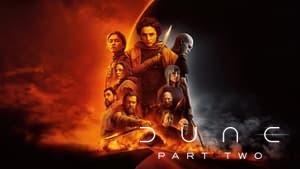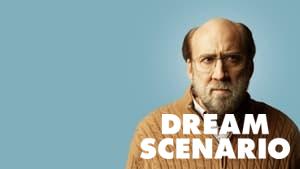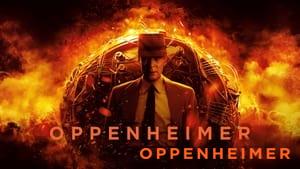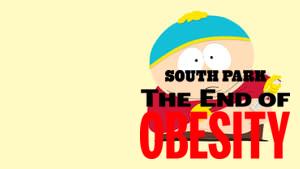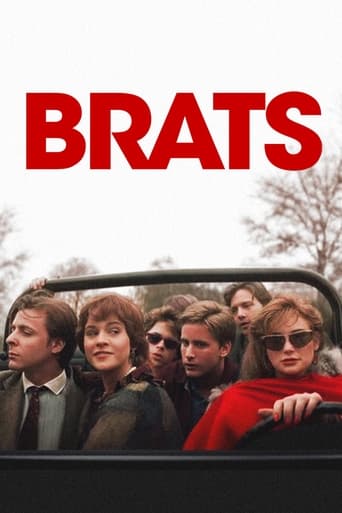
BRATS
Everybody wanted to be in the Brat Pack. Except them.
2024 | 92m | English
Popularity: 2 (history)
| Director: | Andrew McCarthy |
|---|---|
| Writer: | Andrew McCarthy |
| Staring: |
| In the 1980s, Andrew McCarthy was part of a young generation of actors who were set to take over Hollywood after a string of successful teen movies. However, when the New York magazine cover story in 1985 dubs them the Brat Pack, stars in the making suddenly find themselves losing control over the trajectory of their careers. Now, almost forty years later, McCarthy looks to reconnect with peers and co-stars so that together they can reflect on their respective legacies. | |
| Release Date: | Jun 07, 2024 |
|---|---|
| Director: | Andrew McCarthy |
| Writer: | Andrew McCarthy |
| Genres: | |
| Keywords | teen movie |
| Production Companies | Network Entertainment, NEON, ABC News Studios |
| Box Office |
Revenue: $0
Budget: $0 |
| Updates |
Updated: Jan 22, 2026 Entered: Aug 14, 2024 |
| Name | Character |
|---|---|
| Andrew McCarthy | Self |
| Emilio Estevez | Self |
| Ally Sheedy | Self |
| Demi Moore | Self |
| Rob Lowe | Self |
| Timothy Hutton | Self |
| Lea Thompson | Self |
| Jon Cryer | Self |
| David Blum | Self |
| Lauren Shuler Donner | Self |
| Howard Deutch | Self |
| Bret Easton Ellis | Self |
| Kate Erbland | Self |
| Malcolm Gladwell | Self |
| Susannah Gora | Self |
| Marci Liroff | Self |
| Ira Madison III | Self |
| Michael Oates Palmer | Self |
| Loree Rodkin | Self |
| Judd Nelson | Self (archive footage) (uncredited) |
| Molly Ringwald | Self (archive footage) (uncredited) |
| John Hughes | Self (archive footage) (uncredited) |
| Joel Schumacher | Self (archive footage) (uncredited) |
| James Spader | Self (archive footage) (uncredited) |
| Sammy Davis Jr. | Self (archive footage) (uncredited) |
| Phil Donahue | Self (archive footage) (uncredited) |
| Conan O'Brien | Self (archival footage) (uncredited) |
| Richard Schickel | Self (archive footage) (uncredited) |
| Tom Cruise | Self (archive footage) (uncredited) |
| Eric Stoltz | Self (archive footage) (uncredited) |
| John Cusack | Self (archive footage) (uncredited) |
| Jacqueline Bisset | Self (archive footage) (uncredited) |
| Sean Penn | Self (archive footage) (uncredited) |
| John Ashton | Self (archive footage) (uncredited) |
| Liza Minnelli | Self (archive footage) (uncredited) |
| Name | Job |
|---|---|
| Tony Kent | Editor |
| Adrian Buitenhuis | Director of Photography, Additional Editing |
| Evans Brown | Director of Photography |
| Alice Boucherie | Additional Photography |
| Derek Howard | Additional Photography |
| Edward Herrera | Additional Photography |
| Brandon Hickman | Additional Photography |
| Doug Bernheim | Executive Music Producer |
| Valerie Biggin | Music Supervisor |
| Johannes Winkler | Music |
| Adam Beal | First Assistant Editor |
| Andrew McCarthy | Book, Director |
| David Sloan | Senior Executive Consultant |
| Sandro Desaulniers | First Assistant Editor |
| Andrew Knickerbrocker | Assistant Editor |
| Taja Jinnah | Sound Designer |
| Kirby Jinnah | Sound Mixer, Supervising Sound Editor |
| Chase Dubose | Gaffer |
| Jeff Maroun | Gaffer |
| Jeff Adelman | Sound |
| Sal Barra | Sound |
| Milo Cross | Sound |
| Justin Junior | Sound |
| Nick Kelly | Sound |
| Beth Fletcher | First Assistant Camera |
| Brett Graybill | First Assistant Camera |
| Brent Johnson | First Assistant Camera |
| Megan Johnson | First Assistant Camera |
| Nicole Lehrman | First Assistant Camera |
| Dan Muchnik | First Assistant Camera |
| Riley Patterson | First Assistant Camera |
| Scott Peragine | First Assistant Camera |
| Stéphane Renard | First Assistant Camera |
| Jesse Barnett | Title Designer, Graphic Designer |
| Jenn Roberts | Graphic Designer |
| Blake Chambers-White | Graphic Designer |
| Tito Ferradans | Graphic Designer |
| Harper Sinclare | Graphic Designer |
| Ron Penchalaiya | Online Editor |
| Taylor Hanley | Colorist |
| Julie Bannon Nunes | Post Production Supervisor |
| Michael Pedersen | Post Coordinator |
| Edo van Breemen | Music |
| Name | Title |
|---|---|
| Dan O'Meara | Executive Producer |
| Brian Liebman | Executive Producer |
| Derik Murray | Producer |
| Adrian Buitenhuis | Producer |
| Kent Wingerak | Executive Producer |
| Victoria Thompson | Executive Producer |
| Paul Gertz | Executive Producer |
| Brian Gersh | Executive Producer |
| Andrew McCarthy | Executive Producer |
| Tom Quinn | Executive Producer |
| Organization | Category | Person |
|---|
Popularity History
| Year | Month | Avg | Max | Min |
|---|---|---|---|---|
| 2024 | 4 | 3 | 8 | 1 |
| 2024 | 5 | 9 | 18 | 3 |
| 2024 | 6 | 49 | 112 | 10 |
| 2024 | 7 | 24 | 32 | 17 |
| 2024 | 8 | 15 | 28 | 8 |
| 2024 | 9 | 13 | 28 | 7 |
| 2024 | 10 | 13 | 19 | 8 |
| 2024 | 11 | 8 | 17 | 4 |
| 2024 | 12 | 7 | 11 | 3 |
| 2025 | 1 | 10 | 22 | 6 |
| 2025 | 2 | 7 | 12 | 1 |
| 2025 | 3 | 4 | 10 | 1 |
| 2025 | 4 | 2 | 6 | 1 |
| 2025 | 5 | 1 | 5 | 1 |
| 2025 | 6 | 1 | 2 | 1 |
| 2025 | 7 | 1 | 1 | 0 |
| 2025 | 8 | 1 | 1 | 0 |
| 2025 | 9 | 1 | 1 | 1 |
| 2025 | 10 | 2 | 3 | 1 |
| 2025 | 11 | 2 | 3 | 1 |
| 2025 | 12 | 3 | 6 | 1 |
| 2026 | 1 | 2 | 6 | 1 |
| 2026 | 2 | 4 | 6 | 2 |
Trending Position
| Year | Month | High | Avg |
|---|---|---|---|
| 2026 | 1 | 751 | 798 |
Andrew McCarthy’s latest documentary had the potential to be a nostalgic masterpiece, reminiscent of an era that defined a generation. However, it ultimately fell short, primarily due to McCarthy's involvement. As a fan of the films of the 'Brat Pack', I believe this documentary missed the mark in s ... everal key areas. This documentary, clocking in at ninety minutes, feels like an extended exercise in grievance rather than an insightful exploration of the "Brat Pack" phenomenon. McCarthy’s evident resentment toward the term "Brat Pack" permeates the film, transforming what could have been a celebratory reflection into a personal vendetta. Rob Lowe emerges as the standout element of this documentary. His pragmatic and almost philosophical take on the "Brat Pack" label illustrates why his career has endured far longer compared to some of his peers. Lowe’s commentary offers a stark contrast to McCarthy’s bitter tone, highlighting a significant thematic divide within the film. For instance, when Lowe discusses embracing the label and moving forward, it provides a refreshing perspective that the documentary sorely lacks overall. The documentary might have been more engaging if it had included a narrative arc where McCarthy evolves to appreciate the title. Unfortunately, this journey of self-awareness is conspicuously absent. Instead, viewers are left witnessing McCarthy struggle with a term that continues to haunt him. This lack of growth or resolution undermines the film's potential impact. Imagine if the documentary had culminated in McCarthy’s acceptance and understanding of the "Brat Pack" label, much like how documentaries such as "Won't You Be My Neighbor?" successfully showcase personal and professional transformations. The final few minutes of the documentary attempt to offer some praise towards the "Brat Pack" moniker. However, McCarthy’s apparent discomfort with this positive shift renders it ineffective. It feels like a last-ditch effort to garner sympathy or agreement after realizing that his peers have moved on. The film would have been significantly more compelling if it had focused on this reconciliatory tone throughout, rather than relegating it to the closing moments. Think of documentaries like "20 Feet from Stardom," where the ending brings a sense of closure and triumph, something McCarthy's film could have greatly benefited from. In conclusion, while there are fleeting moments of introspection and commendation, McCarthy’s documentary ultimately flounders in its bitterness. The best parts of the film are ironically the credits, leaving viewers to wonder what could have been if the entire documentary had embraced a more reflective and less antagonistic approach. For a documentary that could have celebrated the legacy of the "Brat Pack" and provided a cathartic journey for its creator, it instead serves as a reminder of how unresolved resentment can overshadow the opportunity for meaningful storytelling.
Most Gen Xers will remember with fondness the infamous “Brat Pack,” a group of young stars who ruled the entertainment world back in the mid-1980s. Nobody was bigger than these actors, including Rob Lowe, Ally Sheedy, Demi Moore, Emilio Estevez, Molly Ringwald, and Judd Nelson. But with that superst ... ardom and unfortunate moniker came decades of sadness, regret, and pain. One of the original members of the Pack, Andrew McCarthy, decided to make a film to deal with the group’s shared experiences after being collectively labeled by an article in New York magazine in 1985. The result is “Brats,” a deeply personal and surprisingly insightful documentary. This is a terrific film, especially if you’re interested in the subjects. McCarthy has a personal connection that gives him more intimate access to his former co-stars (many of whom he hasn’t seen nor spoken to in over 30 years). Some are more forthcoming than others (the raw honesty and heartfelt interviews resemble difficult therapy sessions, especially with an incredibly open Moore and a standoffish, obviously still-pained Estevez), and a couple of the former Brat Pack refuse to talk to him at all. But what is revealed is fascinating in a way that’s unexpected, and it’s clear almost all of them have been living with a heavy burden from the typecasting that significantly impacted their careers and personal lives. McCarthy has created a cathartic experience for all of the actors involved, but he also includes perspectives from fans and cultural critics. He’s chosen an interesting mix of subjects to interview, and most of them are eager to discuss the enduring legacy of the Brat Pack films and their place (that’s firmly cemented) in cinematic history. It’s a ton of fun to revisit the actors that defined a generation, but this documentary is so much more than just a nostalgic trip back to the 80s. What makes “Brats” so powerful is the way McCarthy’s introspective journey grows into a deep dive into the psychology and consequences of fame and the weight of labels. The film is a reflection on the power of words and their lasting impact, and is a reminder of how important it is to chose them carefully. By: Louisa Moore / SCREEN ZEALOTS


